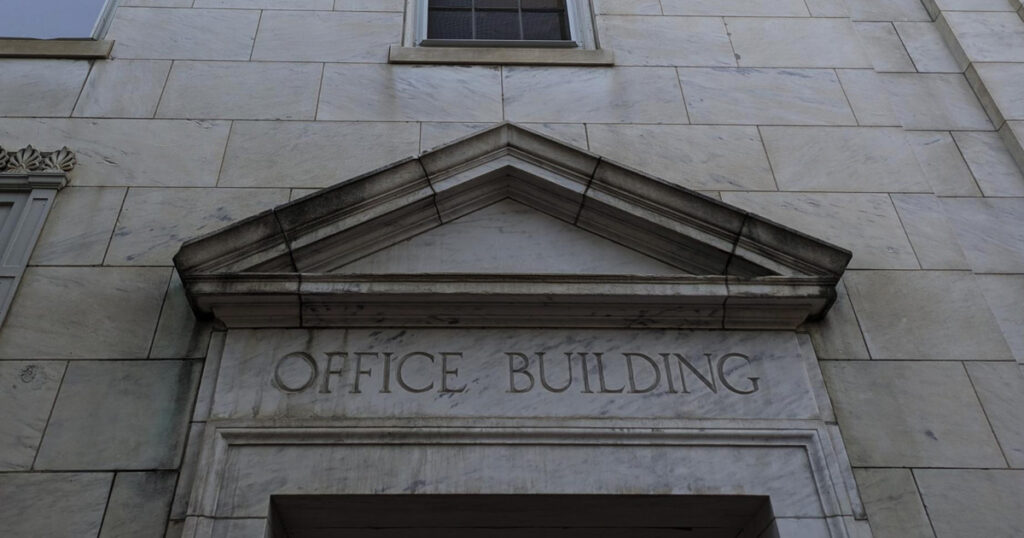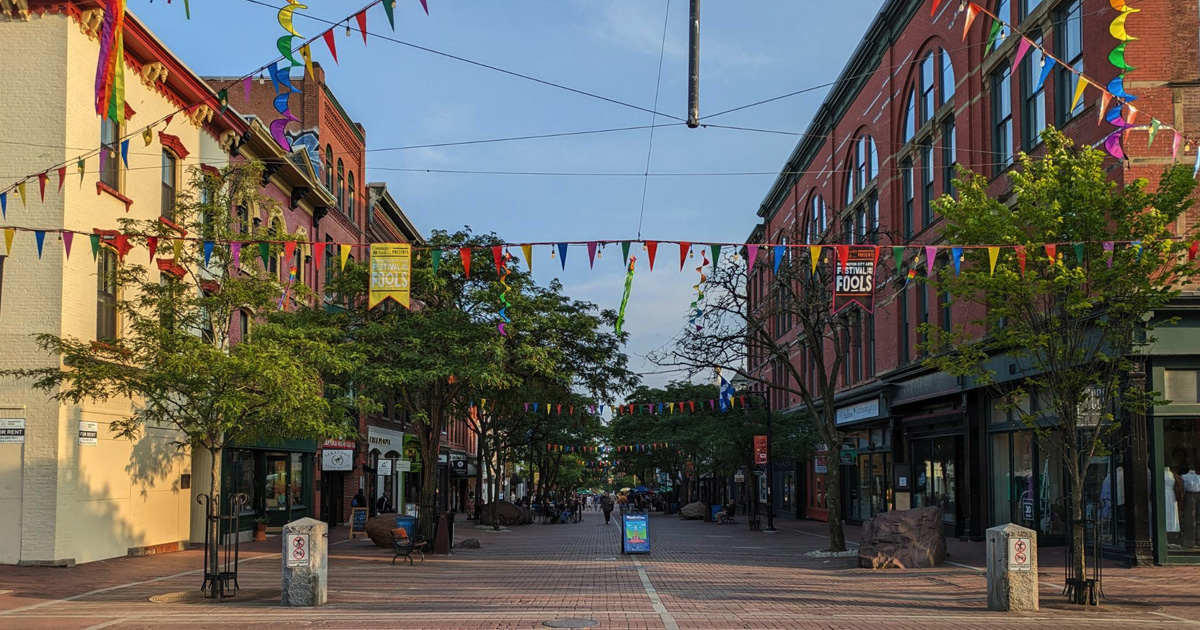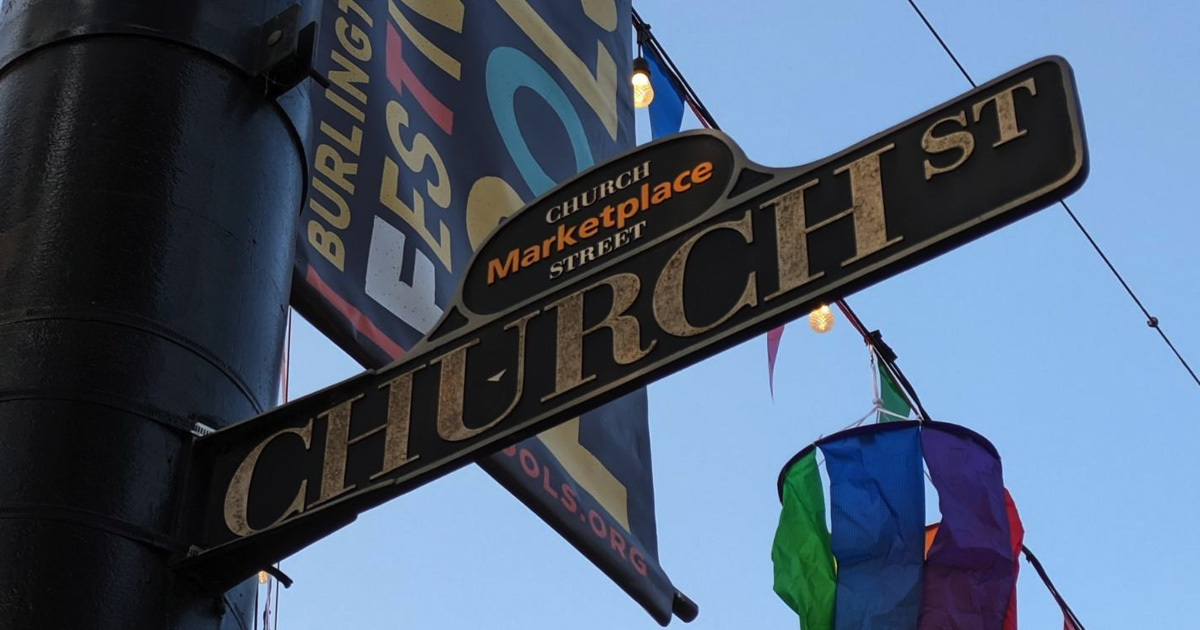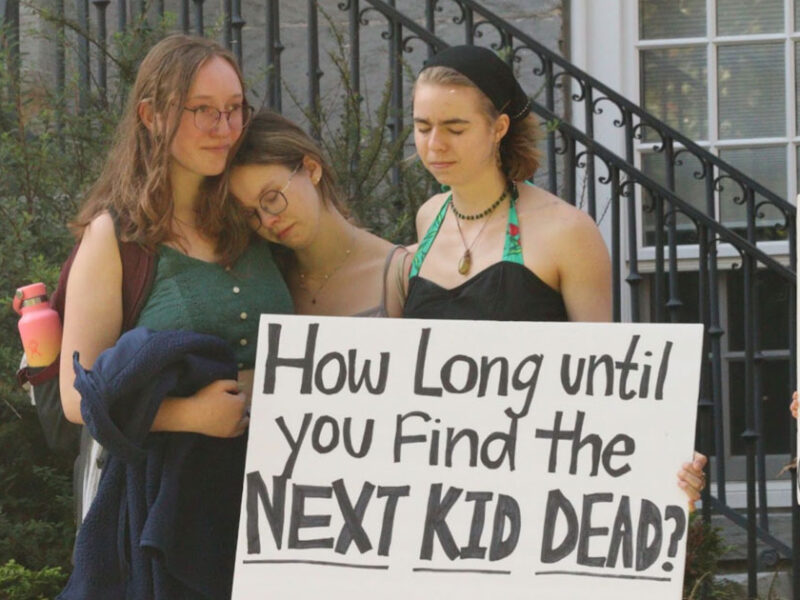Burlington, like many cities across the United States, is a city of commissions and associations. Perhaps unlike the rest of the state, the Queen City features several commissions with an unclear mission to the broader public. Within the walls of these meeting rooms sit power and direct access to many city officials, something The Rake will examine.
In this installment, we’re taking a closer look at the Church Street Marketplace Commission.
History of the Commission
Chartered in 1979 after a city council resolution passed to bring the Church Street Marketplace District of present-day under the control of the City of Burlington, a commission of “five legal voters of the State of Vermont” with no less than four who must be legal voters in Burlington would be appointed by the board of alderman (and later the city council). It is integrated into Burlington’s Department of Business and Workforce Development. Currently, there are nine commission members, which must have two Marketplace business owners at all times, plus a staff of nine, including an Executive Director. The commission also elects a Chair, Vice Chair, Treasurer, and Secretary.
The body, with close ties to the business community, the Marketplace Commission “sets policy for the Marketplace,” which includes regulations around the right of way, smoking, drug and alcohol use, posters and flyers, and use of non-motorized vehicles (skateboarding/scooters). Additionally, the commission establishes fees for property owners in the confines of the Marketplace, and issues licenses for vendors, street performers, and musical acts on the Marketplace.

Who Makes Up the Commission?
The commission is run full-time by an executive director with eight full-time employees in addition to the nine-person commission. Neither the executive director role nor the commissioner role have term limits, with former executive director Ron Redmond, now the City Manager of Vergennes serving in the role for two decades before stepping down, while the commission’s former chair, commercial real estate magnate Jeff Nick also was a member for 20 years. Former commissioners since 2005 include restaurateur Tim Halvorson, fired Burlington Airport Commissioner Gene Richards, his longtime Spruce Mortgage employee Ranjit “Buddy” Singh (2008-2023), ECCO owner Lara Allen (from 2005-2020), Healthy Living Market CEO Eli Lesser-Goldsmith, Marc Sherman of Outdoor Gear Exchange, Phil Merrick of August First, Jed Davis of the Farmhouse Group, and Michael Ly, a CEO at multiple startups and former Republican candidate for Chittenden 6-1 House district.
The current Church Street Marketplace Commission’s Executive Director is Kara Alnasrawi, the owner of Liebling, who is deeply entrenched within Burlington’s business community. Appointed by Mayor Miro Weinberger in 2019, the former political theory instructor at the defunct Burlington College is a board member of the Burlington Business Association (that in itself presents an interesting parallel) and was on its Downtown Action Group. During that time, she was also on the failed Downtown Improvement District Advisory Committee, which sought to privatize the marketplace in 2019, which would have replaced the current commission with a new commission run by a non-profit group and a new board where business owners would have had the power to appoint members in addition to the city council. Along with Alnasrawi, the Church Street Marketplace Commission employs eight others.
The Marketplace, according to its preliminary budget for the 2024 fiscal year generates slightly over $1 million in revenue, along with just over $1 million in expenses.
The rest of the commission includes:
- Mark Bouchett, Chair (commissioner since 2019, chair since 2022): a former Vice Chair who ascended to the top position following Nick’s departure, Bouchett is the owner of Homeport on Church Street and is frequently quoted in local media articles about the Marketplace as he leads the charge to criminalize homelessness on the marketplace. Bouchett was the organizer of multiple Church Street businesses who wrote a controversial letter addressed to Burlington’s state senate delegation. His father, Homeport’s founder, Frank Bouchett, also served as a commissioner in the mid-2000s.
- Linda Magoon, Secretary (since 2016): a retired banker, Magoon is also the vice chair of the Vermont Stage Board.
- Sarah Beal (since 2019): the owner of Common Deer on College Street, one of Beal’s earliest positions was as the former Director of Marketing, Tourism, and Communications for the Lake Champlain Regional Chamber of Commerce.
- Cara Tobin (since 2021): Tobin is the owner of Honey Road Restaurant on Church Street and also owns the Grey Jane on Pearl Street.
- Erik Monsen (since 2020): an Entrepreneurship professor at UVM’s Grossman School of Business since 2014.
- Becky Holt (since 2019): a Burlington resident, Holt has had a long career in media and communications, including 12 years at the Burlington Free Press in various roles, including features editor. She was the director of development and communications at COTS for 10 years until 2021 when she became the executive director of the Vermont Story Lab, which looks to “weave storytelling through the fabric of nonprofit organizations” to expand reach and impact.
- Sam Tolstoi (since 2022): owner of Manhattan Pizza and Muddy Waters.
- Chris Haessly (since 2022): a former Burlington school commissioner, Haessly ran for city council in the Progressive Party primary in Ward 3 in 2021.
- There is currently one opening on the commission.

Why Does it Matter?
While approving permits for vendors and street performers and imposing fees on businesses is to most, standard bureaucracy, the commission hovers within the circles of power that hold control over the city, more so than the average resident. Its last two chairs have crusaded against the unhoused and pushed crime wave narratives without ever offering anything more than punitive measures. Additionally, with business owners serving on the commission, while also being members of the Burlington Business Association, the overlapping interests have a direct influence on any policy the commission might set. This includes support for the privatization of the Marketplace, which was the goal of the BBA, and the proposed Downtown Improvement District, which went before voters and failed to pass in 2019.
There is also the presence of the Chamber of Commerce having a former employee as a commissioner, a theme becoming frequent in Burlington politics in elected or appointed positions (e.g. Ward 8 City Councilor Hannah King), plus the connection to local homeless emergency shelters like COTS, which has long held a close relationship with the city council and in City Hall as an organization that can wield influence around policy measures that often lead to certain non-profits such as theirs becoming the organization of choice, despite concerns in their approach.
With commissions such as this, the imperative is not finding just anyone willing to dedicate time and serve on a commission that issues permits for food carts and entertainment for residents to enjoy in the confines of the city’s main attraction. Like any commission attached to government, it’s largely about power, and the strategic placement of those within it. For business owners, the Church Street Marketplace Commission is a perch, and, if they so choose, a pulpit.
Matt Moore is a writer from Vermont. He is on the editorial collective of The Rake Vermont.



